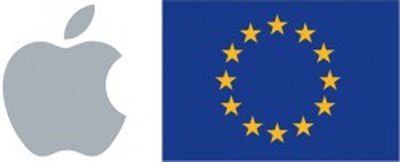 Apple, Google, McDonald's, and IKEA representatives will be in Brussels on Tuesday to discuss their tax deals in Europe, reports Reuters.
Apple, Google, McDonald's, and IKEA representatives will be in Brussels on Tuesday to discuss their tax deals in Europe, reports Reuters.
The hearing will be hosted by the European Parliament's tax committee, but the lawmakers do not have the power to order any changes, according to the report. Nevertheless, the meeting should raise some important questions about each company's compliance with EU tax rules in the past and present.
Apple is one of several multinational corporations that have been targeted for possible corporate tax avoidance in Europe. In September 2014, the European Commission formally accused the iPhone maker of receiving illegal state aid from Ireland, where it has reportedly paid a reduced tax rate of around 1.8% on it overseas profits.
Apple operates multiple subsidiaries in Ireland to pay significantly less tax outside of the U.S., where it earns up to 60% of its revenue. The company's $64.1 billion in profits generated from 2004 to 2012 could be subject to a higher 12.5% tax rate, in which case it would owe more than $8 billion in back taxes.
A decision in the tax probe was originally expected in late 2015, but the European Commission's request for additional information has pushed the investigation into 2016. Last week, EU competition chief Margrethe Vestager told reporters "don't hold your breath" in terms of when the commission will make a decision.
Apple previously said it pays all of its taxes and added that it would appeal any decision made against the company.
Update: While Reuters says the hearing will take place on Wednesday, the European Parliament's website states the meeting will start on Tuesday at 15:00 CET.
Update 2: Apple provided the following statement on Tuesday during its meeting with the European Parliament's tax committee:
"Apple is the largest taxpayer in the world. In 2015 we paid 13.2 billion dollars in taxes worldwide, which is an effective tax rate of 36.4%", its representatives said when asked about the company's tax structures in Europe and the state aid investigation launched by competition Commissioner Margrethe Vestager. However, they were not prepared to disclose its EU and Irish tax figures. "Those are confidential. When country-by-country reporting will become mandatory, we will of course follow". Apple, like Google, pays most of its taxes in the US, where most of its employees are based and its research is done.
Note: Due to the political nature of the discussion regarding this topic, the discussion thread is located in our Politics, Religion, Social Issues forum. All forum members and site visitors are welcome to read and follow the thread, but posting is limited to forum members with at least 100 posts.























Top Rated Comments
I say this, change the law if you want -- that will hurt you enough. But don't make it retroactive, because that is like committing suicide.
EU does not have tax law under its core and non-core competencies, as provided by the EU treaties (Maastricht, Rome, Lisbon.). Individual Member States within the European Union (Both within, and outside the Eurozone) have their national tax systems.
Therefore regulatory arbitrage can happen, because there is no 'EU tax law' rules as such. Companies are free to establish companies in Ireland and Luxembourg and use their national legal systems, and use that to cover their other European operations and subsidiaries.
If you look closely at how the European Commission is pursuing the cases (Apple, McDonalds, Amazon, ...), they are doing so under EU competition law (As there is no harmonised EU tax law.), under the argument of 'illegal state aid'. Not contravening EU tax law, because that doesn't exist.
What they are doing is not illegal under EU law, and national law. If politicians want to reform it, they should do so via legislation (E.g. EU directives and EU regulations.). But then the companies would then leave the EU, therefore damage employment and tax receipts.
Obligatory 'I am not a (qualified) lawyer' disclaimer.